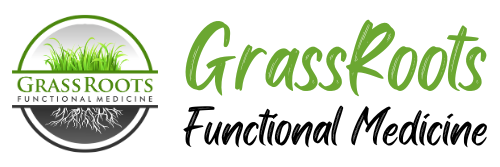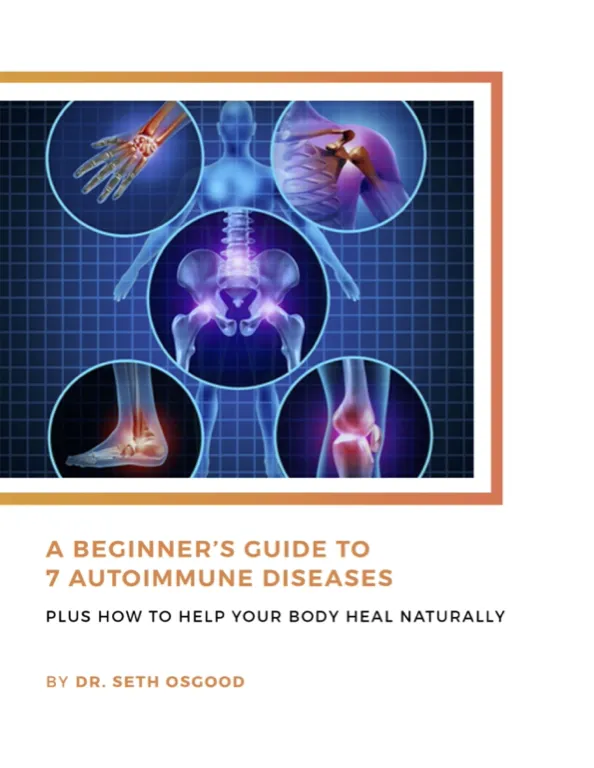By now you’ve probably heard of leaky gut, and you may even know that research has linked it with numerous chronic health conditions.
So what exactly is leaky gut and what are the causes of leaky gut?
Leaky gut occurs when your gut lining becomes too permeable, allowing everything from toxins, bacteria, and undigested food particles to escape your intestines and enter your bloodstream. These particles were never meant to get through, and when they do it leads to a huge increase in inflammation because your body goes into defense mode to attack the unwanted invaders.
This can cause a whole host of problems, including digestive issues, food sensitivities, headaches, mood imbalances, skin issues, and even autoimmune disease.
In working with thousands of patients from around the world, there are 5 factors that I’ve identified as the most common causes of leaky gut.
So let’s walk through them so you can identify your own risk.
Top 5 Causes of Leaky Gut
1. Inflammatory Foods
We’re starting with the biggest offender – gluten! Whenever you eat a food containing gluten it’s not only highly inflammatory, it actually triggers the release of a chemical called zonulin that signals your intestinal lining to open up. This is why I recommend that all of my patients cut out gluten for at least 30 days to allow your gut to recover.
Another big one is sugar, which is also highly inflammatory, along with dairy, corn, and soy.
By removing these inflammatory foods, your gut lining is able to naturally repair itself, and your symptoms resolve.
2. Gut Infections
So many of my patients dealing with leaky gut and chronic illness have an undetected gut infection. It could be Small Intestinal Bacterial Overgrowth, known as SIBO, Candida overgrowth, which is a type of yeast, or an intestinal parasite.
Using functional lab testing, we are able to diagnose a gut infection and overcome it with dietary changes and targeted supplements.
3. Toxins
It’s no secret that we’re surrounded by toxins in our modern environment. From the herbicides, pesticides, and GMOs in our food to the chemicals in our water, and the ingredients in our body products and household cleaners, they’re all around us. These toxic chemicals can damage your intestinal tract, causing leaky gut. They can also spike your inflammation levels, leading to gut damage, and some are even directly linked to autoimmune disease.
The good news is that YOU have the power to reduce your toxic burden! Switching to organic food, filtering your water, and making your own body products and cleaners can all dramatically reduce your exposure to toxins.
If you’re dealing with a long-term build-up of toxins, I also highly recommend infrared sauna therapy. We offer infrared sauna sessions in our New Hampshire clinic and I call it my secret weapon because it’s helped so many patients accelerate their recovery process.
4. Chronic Stress
Whenever you experience stress, whether physical, mental, or emotional, your body’s first response is to ramp up inflammation and slow down your digestive system. This is problematic because more inflammation means potential damage to your gut lining, and slowed digestion means your food is sitting in your digestive tract for longer, which can lead to gut infections like SIBO and Candida overgrowth.
On top of all of that, once the stress passes, your immune system is actually suppressed, which also leaves you open to gut infections.
Now I realize that stress is just a part of everyday life for most of us. But the key is to make sure you’re relieving stress so that your body has time to recover. So choose some of your favorite relaxing activities, meditation, prayer, getting outside, whatever works for you, and make it a part of your routine.
5. Medications
This last one surprises a lot of people, but some of the most commonly prescribed medications can actually damage your gut lining.
Antibiotics, for instance, can kill off the good bacteria in your gut, leading to dysbiosis and intestinal permeability. NSAIDs, such as Advil and Motrin, also disrupt your microbiome and cause bacterial imbalances in your digestive tract. Acid-reducing drugs for heartburn disrupt the pH balance in your gut, and they have been linked with a higher rate of C. diff, an infection that attacks your colon. And finally steroids, which are often prescribed to autoimmune patients, suppress the immune system and leave you open to the gut infections I mentioned.
While there is certainly a place for medications, many of these drugs, in particular, are overprescribed or used as band-aids instead of addressing the root causes of the symptoms they treat. Meanwhile, they’re perpetuating the problem and may cause even bigger problems down the road.
If you’re ready to live your solution, book a free 10-minute consult with me. We’ll review your history, discuss your goals, and determine if you’re the right fit for our Adaptation Program!
About the Author: Dr. Seth Osgood is a Doctor of Nursing Practice, Board Certified Family Nurse Practitioner and Institute of Functional Medicine (IFM) Certified Practitioner. Dr. Osgood received his post-graduate training in Functional Medicine through the IFM and from working with Dr. Amy Myers. He has helped people from around the world improve their health utilizing a Functional Medicine approach.






0 Comments